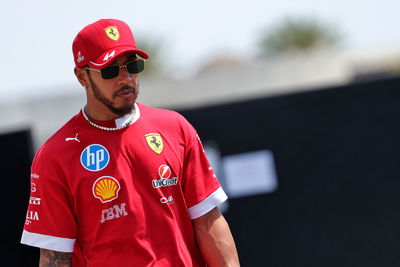Stewart 'happy to help' embattled RBS
In the face of mounting pressure, Sir Jackie Stewart has admitted that he is 'happy to help' the Royal Bank of Scotland - an organisation that, on the day it announced a corporate record ?24 billion loss and one which is now 70 per cent taxpayer-owned, has been heavily criticised for its overblown 'extravagance'.

In the face of mounting pressure, Sir Jackie Stewart has admitted that he is 'happy to help' the Royal Bank of Scotland - an organisation that, on the day it announced a corporate record ?24 billion loss and one which is now 70 per cent taxpayer-owned, has been heavily criticised for its overblown 'extravagance'.
Last week, Treasury Select Committee member John Mann MP suggested it might be prudent for Stewart and fellow RBS representatives Andy Murray (tennis), Jack Nicklaus (golf) and the Queen's grand-daughter Zara Phillips (equestrian) to relinquish their lucrative roles - one that, courtesy of his wealth of contacts and supreme networking skills, has benefitted the three-time Formula 1 World Champion to the tune of some ?4 million as he travels the globe entertaining VIP guests in glamorous fashion at grands prix [see separate story - click here].
Whilst insisting that he is in no way to blame for the bank's unprecedented financial collapse and pointing to the fact that he has two years still remaining on his contract, the 69-year-old Scot has now conceded that - particularly in the light of RBS' announcement that it is to terminate its sponsorship deal with Williams at the end of next year [see separate story - click here] - he is willing to reconsider his position.
"I'm happy to help the RBS at the moment," Stewart told The Herald, "and I am in the process of drawing up a proposal, which will be of significant interest to them, but I'm not at fault when it comes to directors taking decisions or politicians meeting bankers.
"I feel for people who are losing their jobs, but I have a long-term contract with the bank and I have always been open in my dealings with them. The fact is I was involved with Ford for 40 years, and with Moet and Rolex for the same period. I have never shirked my responsibilities in these relationships, which is why they have all lasted so long."
Tennis star Murray has hinted that he may be willing to re-negotiate because 'the bottom line is I want to help'.
Meanwhile, RBS' corporate hospitality has been described as 'certainly extravagant' by UK newspaper The Times, with suggestions that 'the days of champagne and canap?s' at sporting occasions 'may be over' as banks - which replaced tobacco as F1's principal sponsors three years ago - increasingly reel from the global credit crunch and pull the plug on their backing. Aside from RBS, Renault title sponsor ING is to depart the fray at the end of the forthcoming season, and long-time BMW-Sauber partner Credit Suisse walked away back at the beginning of the year.
'I have long experienced Formula 1, and the extravagance of the corporate box was something that mirrored the economic times,' wrote Kevin Eason. 'As the money flowed freely, so the extravagance grew.
'Flying people around the world to grands prix became part of the fabric of corporate life and was built into the practice of big business - but now we will see severe examination of that, because not only can companies not afford it anymore, they will be under pressure from shareholders who think their money should be used more discreetly.
'I think even they (RBS) would admit they have been profligate in the past, paying out massive amounts of money on contracts. They really have thrown it about.
'From now on I think they will be looking for value for money, and their deal with the Six Nations represents that. That deal, which is worth ?20 million over four years, is relatively cheap. Compare that to the ?10 million per year they pay the Williams F1 team, and you can see the difference.
'The curious thing for Formula 1 was that it was dependent on tobacco advertising for years. It managed to back out of those deals because finance came in from banks and big insurers.
'Now the banks have gone belly-up, the question is which new sector do you go to, to find the cash? The problem is that there isn't a sector that looks in good enough health to be that replacement.
'Finding someone will be quite tricky [for Williams]. McLaren and Ferrari have always pulled in big money because of their profiles at the front of the grid, but further back it's a very different story.
'There is going to have to be some new and imaginative thinking in Formula 1's boardrooms to come up with some ideas on how to find this sponsorship money, because it is not just the likes of ING and RBS who are in trouble anymore; there are also some doubts about Santander Group. There are some hard times ahead.'










